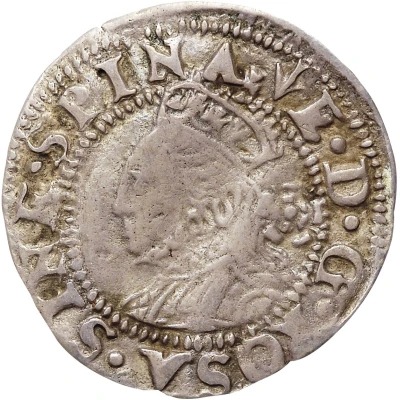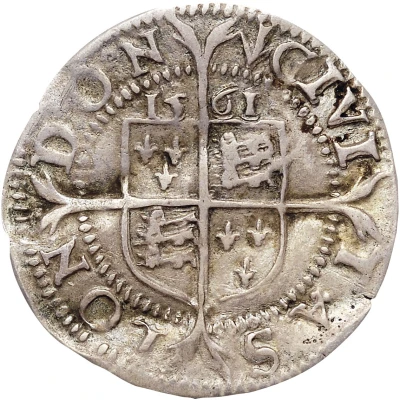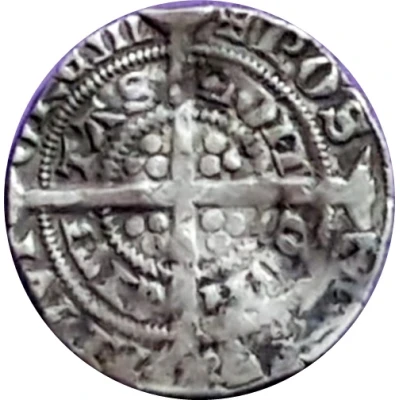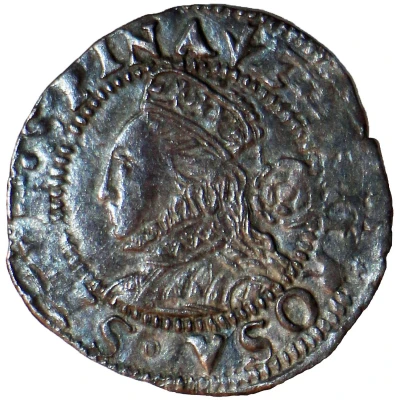
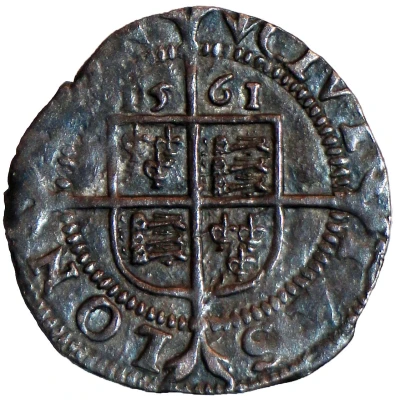

© John Conduitt (CC BY-SA)
1½ Pence - Elizabeth I 3rd and 4th issue; small flan
| Silver (.925) | 0.64 g | 15 mm |
| Issuer | England (United Kingdom, British Overseas Territories and Crown Dependencies) |
|---|---|
| Queen | Elizabeth I (1558-1603) |
| Type | Standard circulation coin |
| Years | 1561-1578 |
| Value | 1½ Pence (1⁄160) |
| Currency | Pound sterling (1158-1970) |
| Composition | Silver (.925) |
| Weight | 0.64 g |
| Diameter | 15 mm |
| Shape | Round |
| Technique | Hammered |
| Orientation | Variable alignment ↺ |
| Demonetized | Yes |
| Updated | 2024-10-08 |
| Numista | N#238518 |
|---|---|
| Rarity index | 84% |
Reverse
Long cross fourchée over quartered shield of arms below divided date within inner circle, mint mark and legend around.
Script: Latin
Lettering:
[mm] CIVI TAS LON DON
15 61
Translation: City of London
Comment
House of Tudor (1485-1603), Elizabeth I (1558-1603), Third and Fourth issues (1561-77), small flan (inner circle 10.5-11.5mm).The sixpence, threepence, threehalfpence and threefarthings were marked with a rose behind the queen's head to distinguish them from the shilling, groat, halfgroat and penny.
Mintmarks shown here courtesy of Spink & Son Ltd:
Interesting fact
One interesting fact about the 1½ Pence Elizabeth I coin is that it was issued during a time of great change and turmoil in England. The coin was minted during the third and fourth issues of Elizabeth's reign, which saw the introduction of a new coinage system and the transition from the traditional silver penny to a copper penny. This change was made to address the issue of currency debasement, which had resulted in the value of the silver penny falling significantly. The 1½ Pence coin, made of silver, was a transitional coin that helped bridge the gap between the old silver penny and the new copper penny. Despite the challenges of the time, the coin remains a valuable piece of numismatic history.
